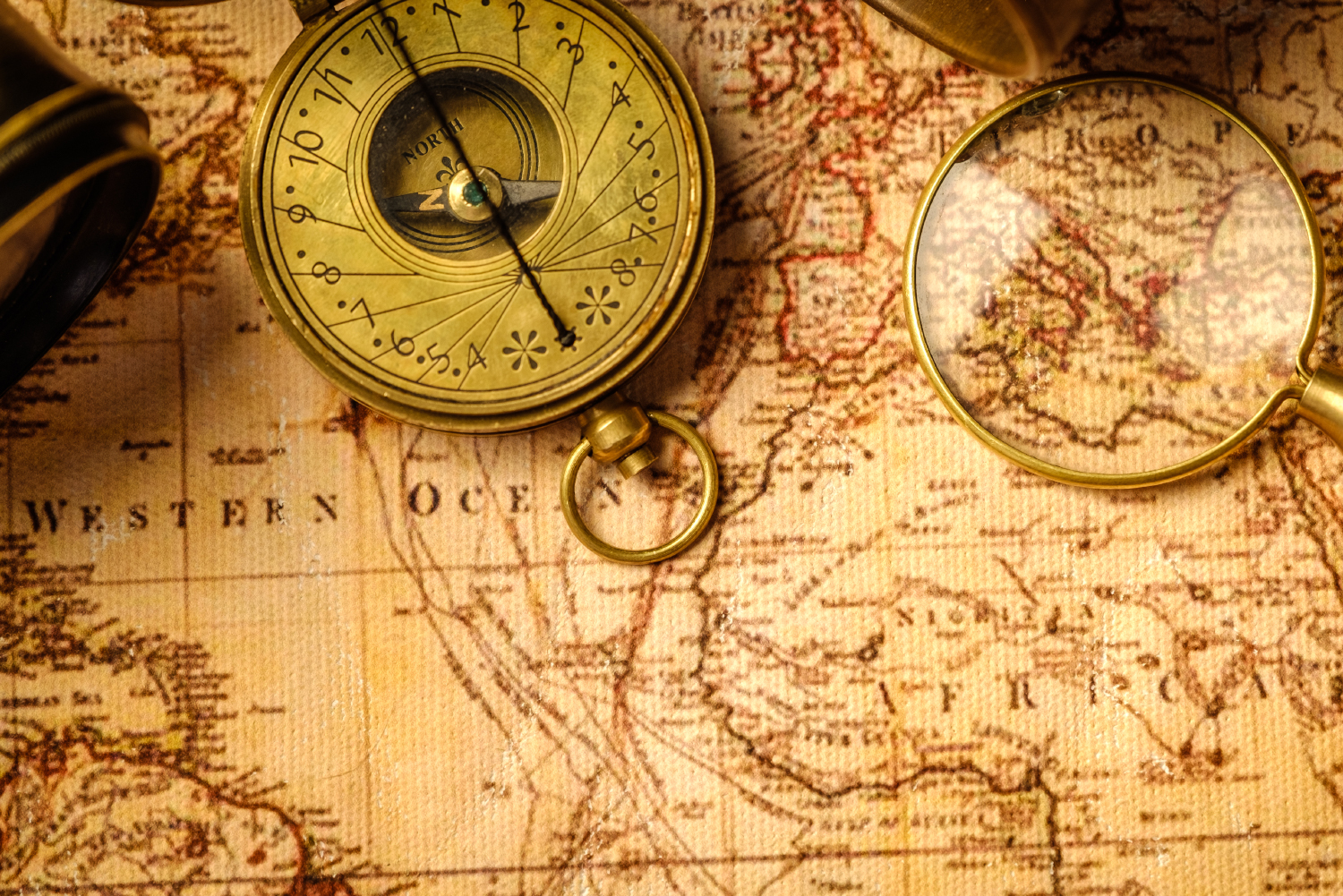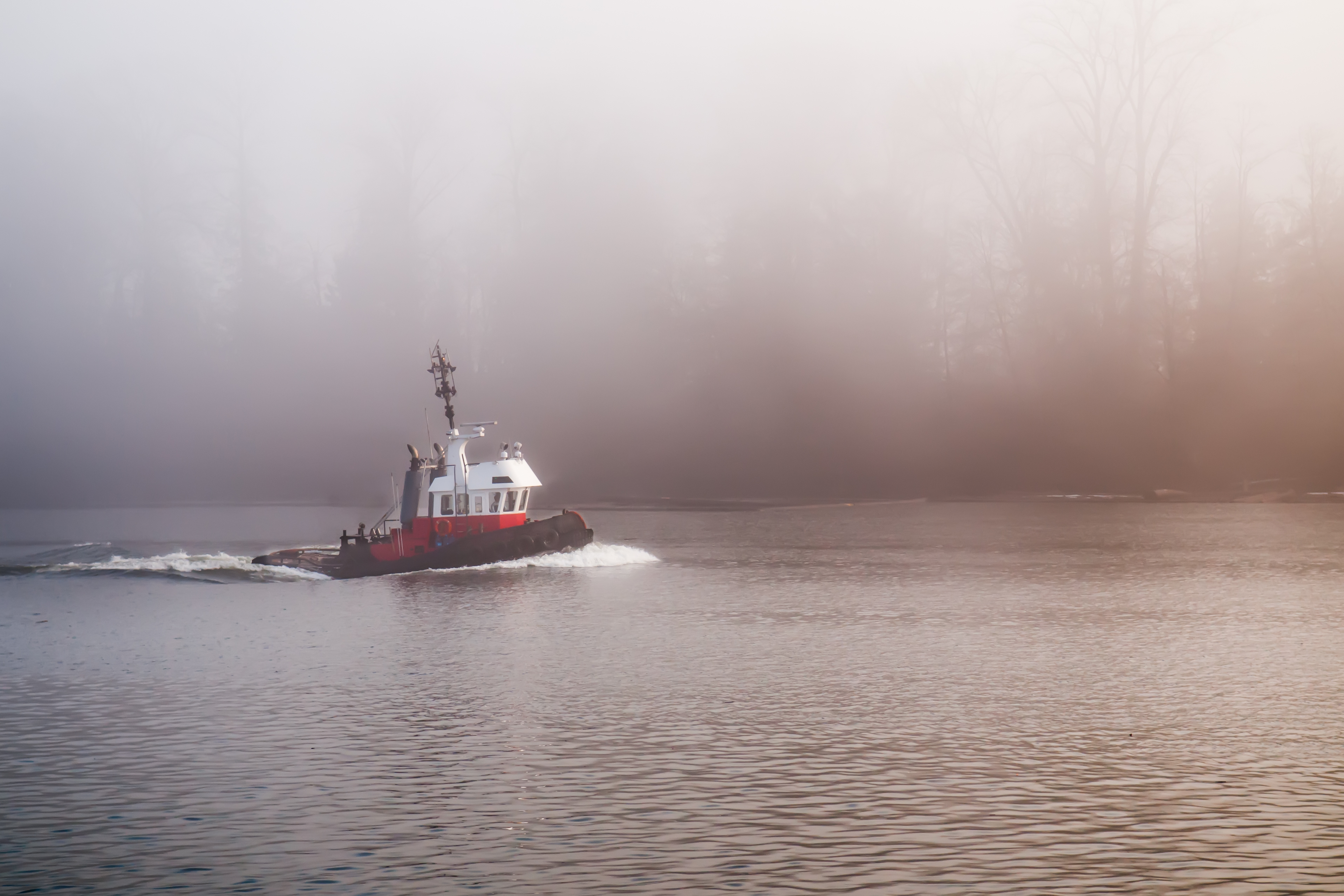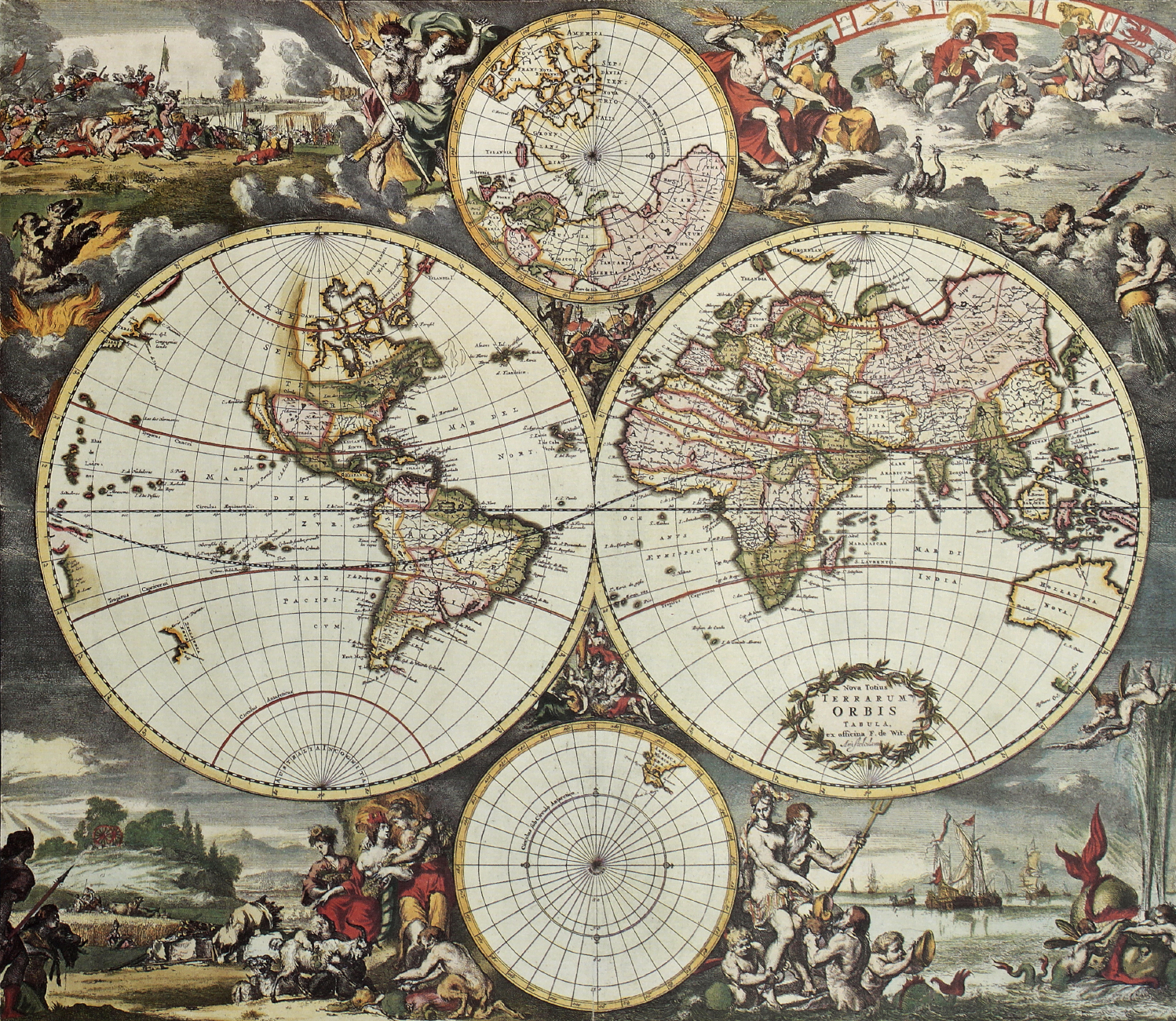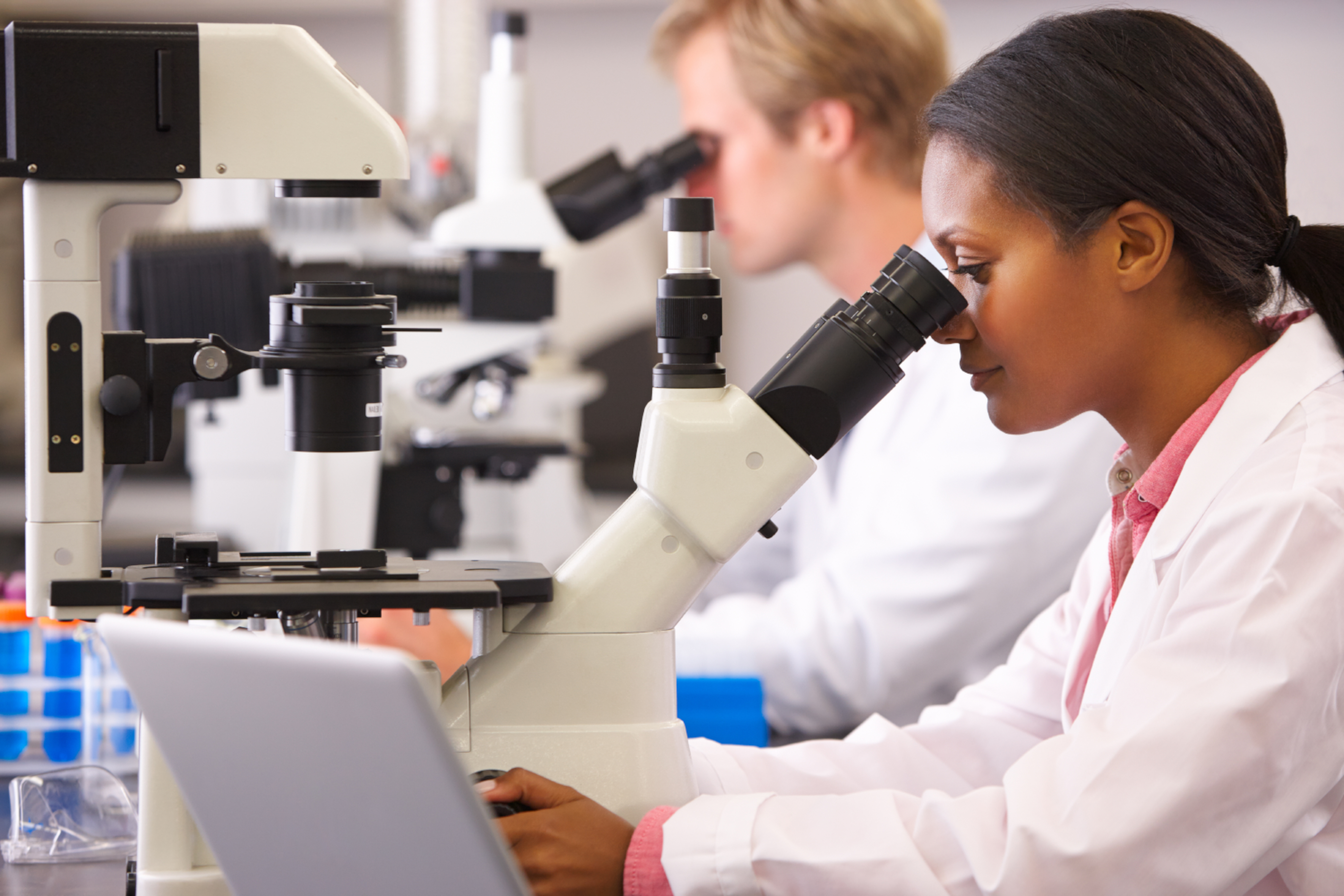So you go into new lands and try to map them out and get a better picture of the world that’s out there. I think one of the difficulties about explaining science is in understanding what it’s like to do science. When we learn science in school, we tend to mainly learn facts about the world – but we don’t have to memorise them and that can make it quite boring. I found it boring anyway. In art, you learn, you’re taught to like, to play and to create all these things. But if you want to discover new places, you really have to throw yourself into the unknown. You will have tools that can help you, but you don’t know what you’re going to see.
A journey into the unknown
Cell Biologist
- Science is about the creative process of discovery, about going out into a place where you know that the things you’ve learned may be wrong and taking that to the next step, in collaboration with others.
- If you don’t get pleasure from seeing that one thing that disproves your hypothesis, or from rethinking your hypothesis, or from doing an experiment just to check your equipment works, then it’s very hard to be a scientist.
- One of the strengths of science is collaboration: different voices each having their own ideas, each listening to one another. The more different voices you have, the better the science is.
A journey into the unknown
I like to think about science, and maybe the scientist, as a bit like one of these explorers who’s got a map of the world. It’s a flat map. They imagine a two-dimensional world and they’re going out exploring in the 1400s, 1500s, to map continents. And because it’s really a journey into the unknown, where you don’t know where you’re going, you have a map, but it’s not a very good one. You also have tools like telescopes, lenses, which can help you to explore, to see things that maybe the previous generation of explorers didn’t before our better ships, better microscopes, better telescopes.

The creative process of discovery
It’s much more about the creative process of discovery, about going out into a place where you know that the things you’ve learned are wrong and you’re trying. You respect them, because people have gone before you and they’re brilliant people and you read carefully what they’ve done. But taking that to the next step, you have to go out and try and find things that might have been missed or things that might have been wrong. So, it’s a mixture of humility and arrogance, like many things, one where you think “Maybe I can make a little contribution.” And you get on the boat with your team, because science is a team endeavour, and you go to this place where no one’s been. You try to discover something new.
Imagining a world we haven’t seen
And the problem in the unknown, too, is that you never know whether you’re going to find anything interesting. Most of the time in the lab, what we have to confront – and this is what’s difficult for very smart young people who come into a lab for the first time – is they might be very good at memorising things. But when you put them in the lab, these things don’t work, because when you’re in unexplored territory, lots of things can go wrong. We spend most of the time on the small stuff, just trying to fix things and making a device work, collecting data in a beautiful way so that when you repeat it it’s also rigorous, formulating ideas about the way you imagine the world could be and a theory against which you can test your experiments. So, much of the time, we’re working in this very muddy area, this kind of fog, when we’re exploring. It’s very foggy when you’re doing real explorative research. If you’re lucky, sometimes you have an idea which turns out to be true. A really fresh idea tends to only happen once or twice, a few times, in your career – it hasn’t happened to me very often. Usually, though, if you do have an idea, it’s wrong because you’re imagining a world that you haven’t seen.

So when you get there, what you discover is your idea is wrong. People often think that science is boring and it’s all about falsification, all about repeating experiments. I think that’s really wrong. It’s a creative endeavour where you’re going into the unknown with colleagues. You’re all confused. You’re trying to think about the way things might be, checking to see if that is the case. Often when you make a measurement, you can’t falsify your hypothesis because the measurement won’t work; the machine that made the measurement is not working properly. You really find yourself in this fog. Yet, you hope to make little bits of progress, and that’s why the real pleasure in science is not when a theory is finally accepted – which may never happen in most of our careers, and because our theory tends to be wrong – it’s not when we get prizes.
The pleasure in science
The real pleasure in science is going with a team into the fog and making little bits of progress, because the beautiful thing about being a scientist, I would say, is that the world is full of amazing stuff. It’s beautiful. It’s complicated. It’s hard to understand. No matter how much has been done before, there’s always a huge, uncharted territory. And that’s one of the reasons why I’m so excited about the work in archaea that my lab is doing: it’s one of the two domains of life, as some people would say, and yet we know almost nothing about it. Anybody can pick up tools and go and try to help in the endeavour. And because science is this kind of process, this exploration, it’s not the people who are just very clever who excel.
It actually requires a lot of simple tenacity and hard work. If you don’t get pleasure from seeing this one thing that disproves your hypothesis, if you can’t get pleasure from rethinking your hypothesis, if you can’t get pleasure from doing an experiment which is not even testing a hypothesis but just checking your equipment works, then it’s very hard to be a scientist because you get these knocks over and over again.
Maps, not facts...
If you are tenacious and if the pleasure you get when you discover that little thing that nobody else in the world ever knew before and you put a little mark on human progress and you share it with the world, then you can get great pleasure from science as a discipline. The reason I’m passionate about explaining this, or my view of the way this works, is because I think a lot of the confusion about science comes from the idea that it’s about facts. But in science, we’re always navigating in unexplored areas. We’re trying to get closer to the truth. We’re trying to get our maps to be more accurate representations of what’s there. But often we learn through the history of science. Newton could describe the movements of the planets pretty well, but it turns out that his understanding of why they move was completely wrong. Einstein then went on to show that we can rethink the world and get much closer to it. This is happening all the time. So, science is really not about facts. It’s about moving a journey towards better and better maps, more accurate maps.

People, not prizes...
When you go out on an expedition, you’re going as a group in a boat. And often there’s a fleet of boats and they’re all competing to be first because science is a very competitive business. But, really, the fruit of science, the knowledge, the progress happens at a community level. It’s all of us working together. And that’s why it’s really important that science is considered a community endeavour. Nobel Prizes should never be considered for people. They're for communities that succeeded in climbing a mountain and in charting new territory where what we get is a good understanding of something we didn’t understand before. The prize goes to a field, and there are one or two people who are recognised as leaders in their field, but the prize should really be seen as a field endeavour.
A more inclusive science community
It’s really important that we have a more inclusive science community, where we have more people from different community groups. Black people are often absent from scientific conferences. We need these voices because one of the strengths of science is this collaboration: these different voices, each having their own ideas, each listening to each other. The more different voices you have, the better the science is. And it also highlights the problems with the mapping of continents by explorers in the 1500s and 1600s, which, as we know, was driven by colonial ambitions.
The idea you’re going to own stuff you can exploit, make money, get slaves or these sort of things was driven by this desire to go into the unknown. It’s also really important that the public feel they own science, because as we do explore new territories, we have to make sure that the fruits of those discoveries are everyone’s. This is why it’s so important that science is a global endeavour, not an endeavour where it’s individual countries doing their own thing.

So, we should not have scientists in one country giving vaccines for coronavirus to their country alone. All the work we do in science is a global endeavour. We share all our knowledge with everybody. And that’s the way it should be. That’s why we’ve made progress in the past. I think by being more inclusive, we can make even more progress in the future. By including science from all across the world and within each community, making sure that everybody feels that science is theirs – that if they want to do it and they’re tenacious enough, and they love the natural world – then there’s room for them and there are plenty of things to discover.
Appreciating our own complexity
In a way, scientists are representing their community, and the whole world community, when they’re exploring the unknown. One thing that really struck me is that when I met people who were fundraising for Cancer Research UK (which funded my cancer research), they wanted to know about the science because they’re also fascinated with how life works. One of the main goals is that we have to appreciate our planet, we have to appreciate ourselves and our complexity. Even if we live longer, it’s not going to be forever, so we have to sort of appreciate life and how we work for just the beauty and the mystery, the extraordinariness of it.
In terms of curing disease, of course, science and technology move incredibly fast, almost too fast for societies to keep up with. I think that’s actually quite a well-oiled machine, but we have to be careful as scientists not to overpromise. When we are doing cancer research, I talk about how cells divide in crowded environments and how that’s relevant to cancer. Leading to a drug that’s going to cure cancer, if it ever would, is going to take a long time ... 20 years, 30 years. The value in that science is that science does give you a picture of how the world is – not a perfect picture, but you’re moving close to a better map of the world. It’s the sort of foundation upon which you can build technologies to do things like cure disease.
A framework upon which to understand the world
Often our research, which might be into cancer, turns out to be more useful in stem cell research, or in enabling us to cure a parasite that infects humans or plants. So, because fundamental science is this sort of framework upon which we can understand the world, it’s got a much greater utility, I think, than just solving one problem. So, although much of the research we do is directly targeted towards this question in cancer research, I definitely see it as fundamental research that I hope will contribute to that. But it’s quite likely to have implications in other fields if we can make progress.
Discover more about
being a scientist
Baum, B. (2017, February 22). Science: A journey in search of a destination. BioMed Central.